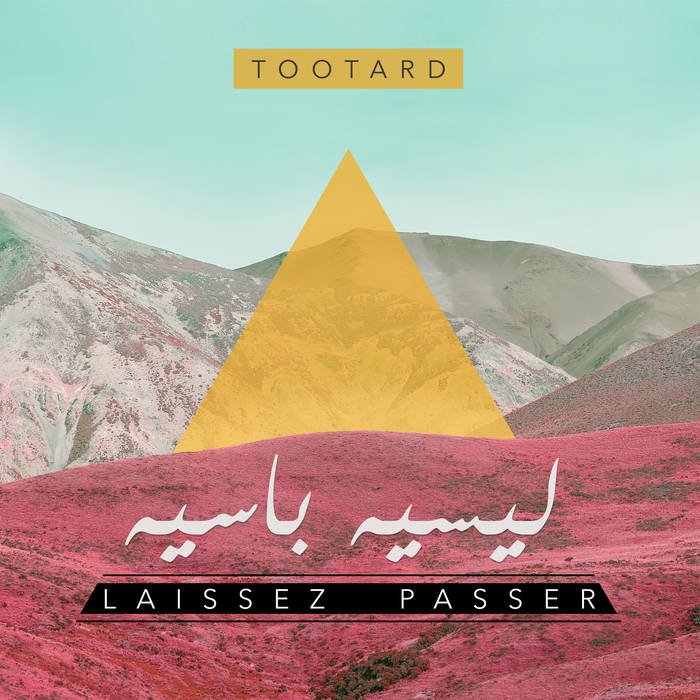I first heard of TootArd (Arabic for ‘strawberries’) in my Casablanca apartment in the wake of the Arab Spring, with their first hit Ruh Bladi. Released in 2011, the group’s reggae-influenced first album Nuri Andaburi took the band to perform over the Golan Heights, and in Jerusalem, Palestine, and beyond. Now, with their second album, the band is visiting further cultural traditions.
There is no doubt that TootArd‘s latest release (the first one for Glitterbeat Records) carries a political statement. The geopolitical context in which they emerged inherently forces them into a particular political and identitarian position. Lead singer Hasan, his brother Rami, who’s on bass guitar and percussion, and saxophonist Mdah grew up in the Israeli-occupied village of the Syrian Golan Heights region known as Majdal Shams. As the album title reads, Laissez Passer, on the one hand, refers to the document that entitles Syrians to reside in Israel, yet denying them any right to citizenship anywhere else. On the other hand, Laissez Passer (French for ‘Let them pass’) is an unquestionable demand for the opening of geopolitical borders.
Such liquidity in terms of physical borders may also transpose to the musical landscape sketched into Laissez Passer. Despite the band remaining loyal to their reggae-centric influences, they have taken a slight yet very suitable turn towards psychedelic rock and, unarguably, they have opened up new paths towards North and West African musical traditions.
Such complexity of sound is noticeable throughout the whole album, with tracks like “Sahra”, in which, handclapping and percussion patterns are inspired by Tuareg melodies typical of West Africa, including the iconic Malian, Tinariwen. The saxophone traces beautifully spiralling circles along the lines of Middle Eastern popular music. To top it off, the psychedelic rock motifs on the guitar bass sound marvellous. Further on, the album experiments with other genres, such as in “Bayati Blues”, a purely instrumental track that kicks off with a seductive, downbeat handclapping and also displays a charmingly jazzy use of winds.
The album then moves into another bluesy track, “Syrian Blues”; a blues that may evoke the longing for a place they historically belong to, but have never been allowed to step in. Luckily, music is timelessly borderless, and, with Laissez Passer, TootArd have come up with a well-thought-out production, both in terms of concept and sound arrangements.


